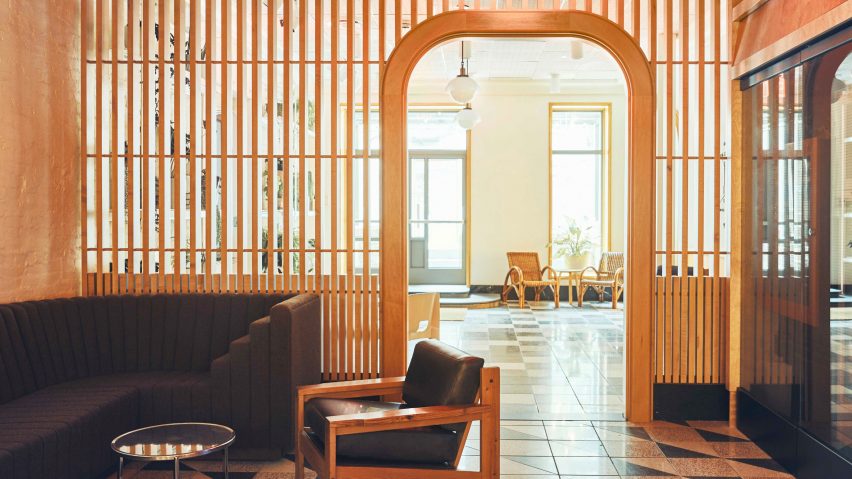
Atelier Ace draws on warmth of Finnish saunas for Manhattan's Sister City hotel
Ace Hotel's in-house creative team has completed a new hotel next to the New Museum in New York, featuring warm wood self-check-in booths, a diner-style restaurant and compact bedrooms designed like "Japanese bento boxes".
Atelier Ace's Sister City hotel is located next to the contemporary museum in Manhattan's bustling Bowery neighbourhood.
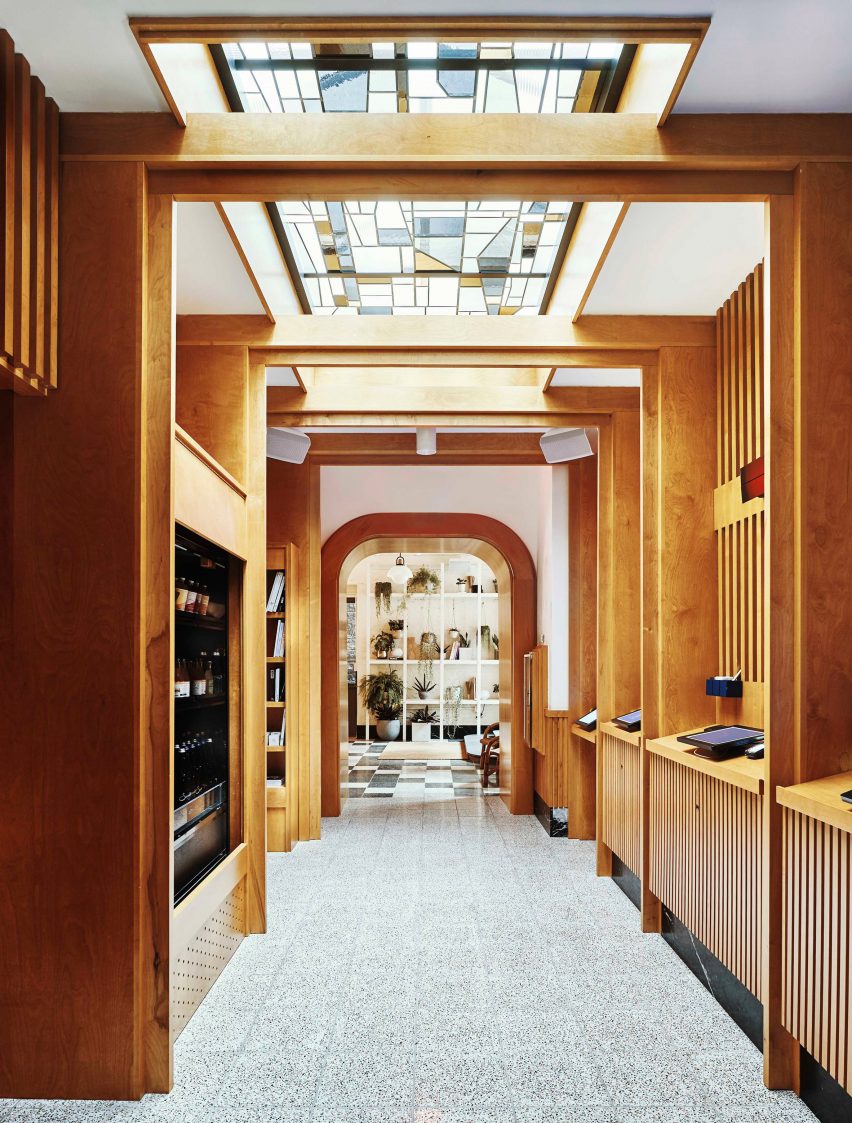
Four floors were added to an 10-storey, brickwork building at 225 Bowery to create the 200-room hotel, complete with a rooftop bar and a ground floor restaurant. The extension comprises white brick and glass blocks to complement the existing structure.
Sister City has two entrances: one is from Bowery and leads to a slender dining patio, and the restaurant. The other entrance is located off Rivington Street down Freeman's alley, and leads to a private garden intended as a transition from the busy city into the hotel.
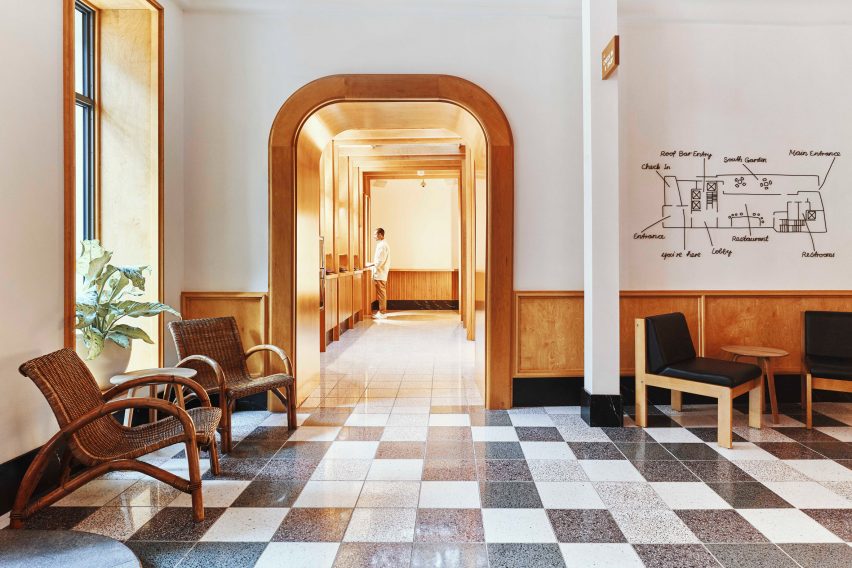
Inside, Atelier Ace – which is also behind properties in the Ace Hotel chain – aimed to create spaces that would continue to offer guests a respite from the busy city.
Decor is influenced by the "functional perfection of Finnish saunas", the hotel's decor features a suite of warm woods.
On the ground level, warm honey birch forms doors, curved archways and slatted screens that divvy up the lobby area, a library and the restaurant called Floret. Custom-built wood also forms a set of desks, where guests can check themselves in and collect room keys.
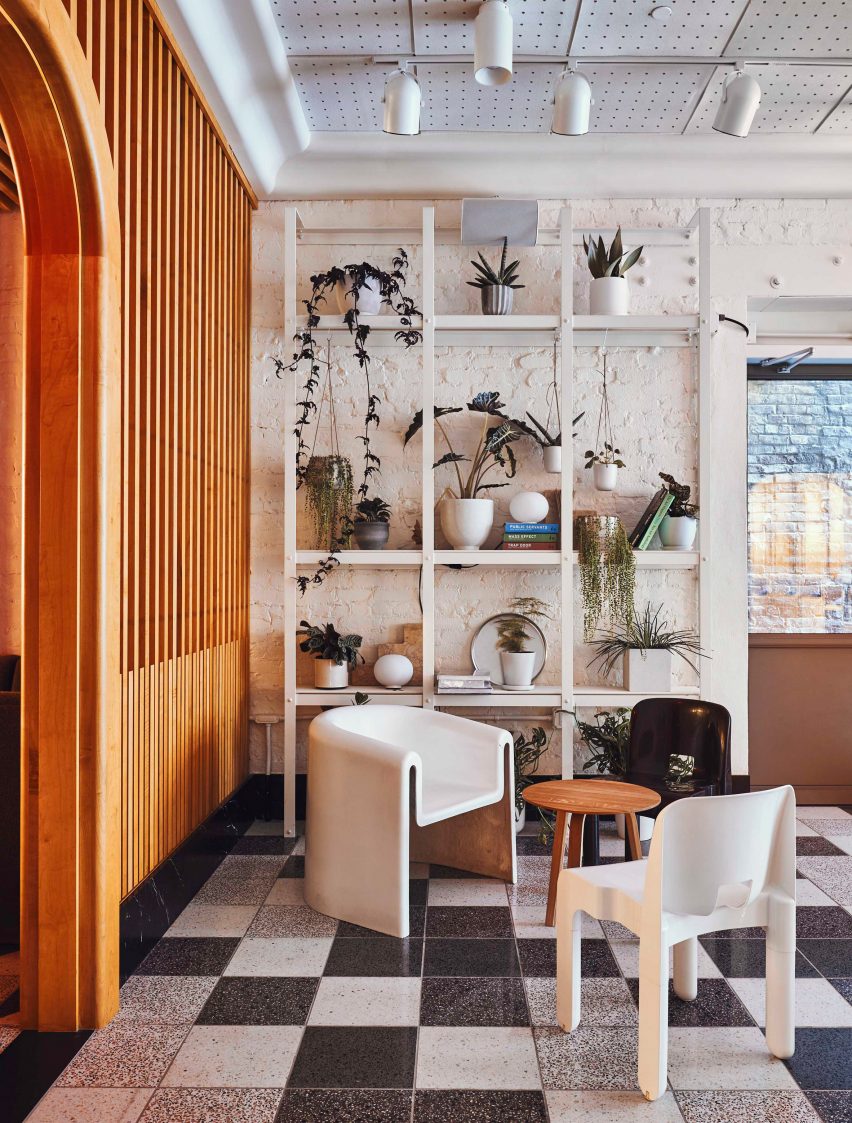
Furniture throughout the floor is eclectic, from mid-century chairs in the lobby, comfy sofas to the dining chairs in the restaurant, which were sourced from a German school. The eatery also features curved, dark wooden tables, white walls and black-and-white floor.
The aesthetic of Floret is reminiscent of a traditional American diner-style and reflects its casual atmosphere. The restaurant is set to open to the public later this year, with outdoor dining provided by a long patio at the front of the hotel.
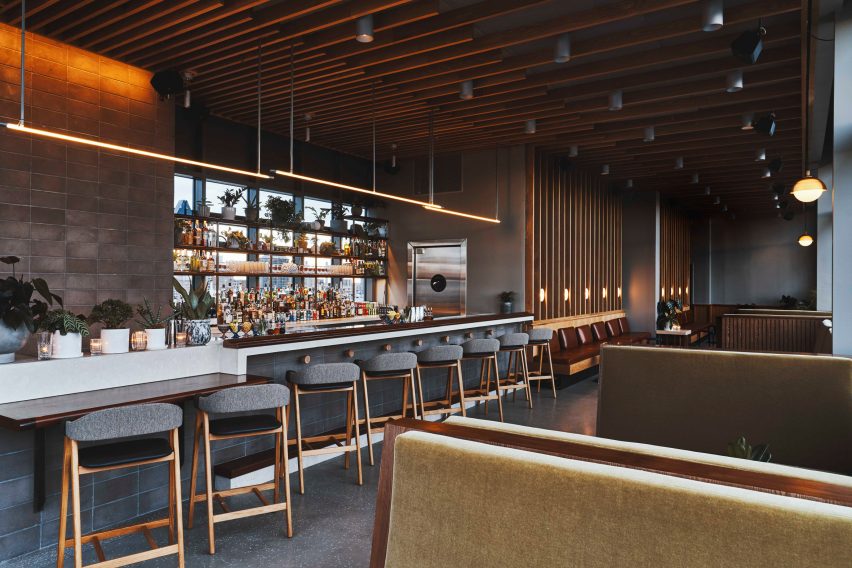
Atelier Ace has also created a bar with light bites on the 11th floor of the hotel with access to a rooftop. Called Last Light, the space is intended as a casual hangout for guests and locals, in comparison to the busty scenes of rooftop bars in the city.
Forming part of the extension, Last Light features long expanses of glass that offer impressive views of the city during the day and night – the eatery is open daily from 3pm to 2am. Slatted woodwork lines the walls and ceilings inside, while a range of seating offers various options for customers. These include bar stools, benches covered in a dark green textile, and wooden seats with red leathery tops.
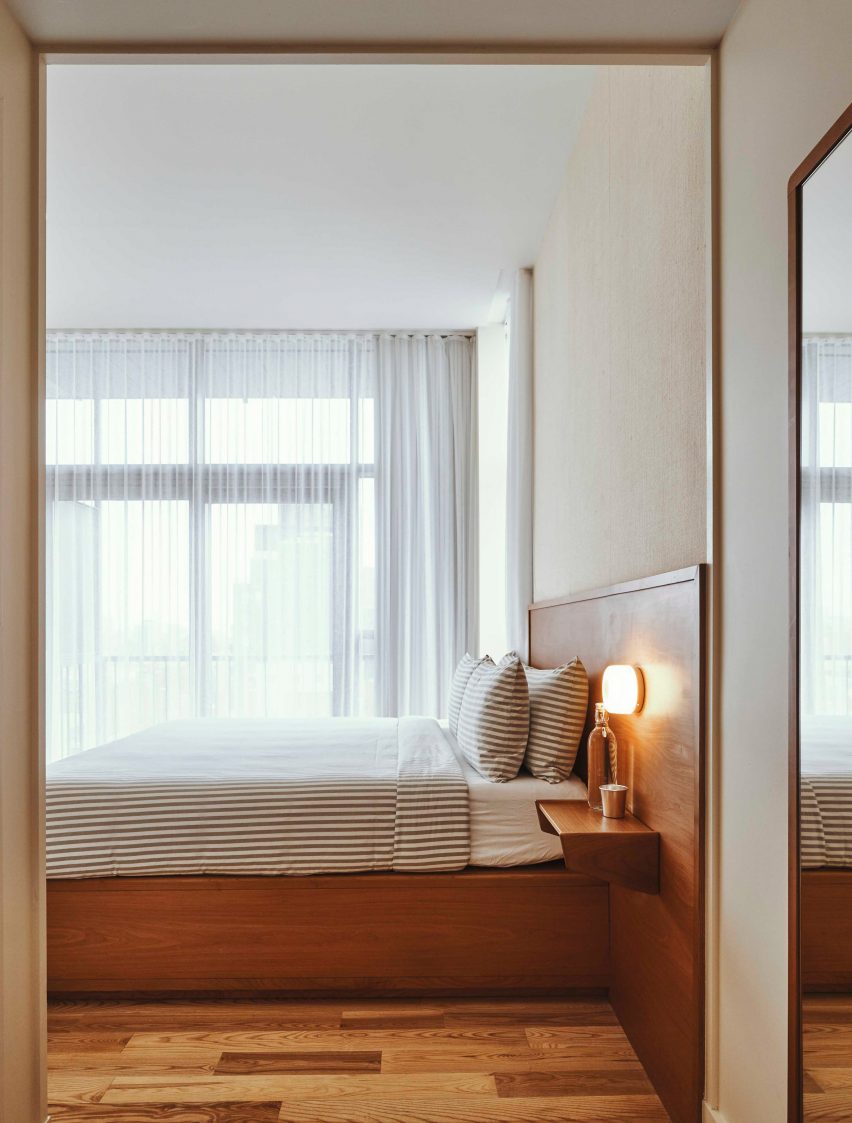
The guest rooms range in size from 130 to 260 square feet (12 to 24 square metres), and layouts that include single, doubles and bunk beds. Atelier Ace designed custom made cherry wood bed frames and storage to make the most of the space, likening the compact layout to "Japanese bento boxes".
Each room also includes a wooden valet that folds up and down when needed, terrazzo sinks in the bathrooms, striped bedsheets and a hand-numbered and stamped Noguchi lantern, all of which are intended to add to the cosy atmosphere. There is also a Bang & Olufsen speaker hooked up to the Headspace app for guests to meditate.
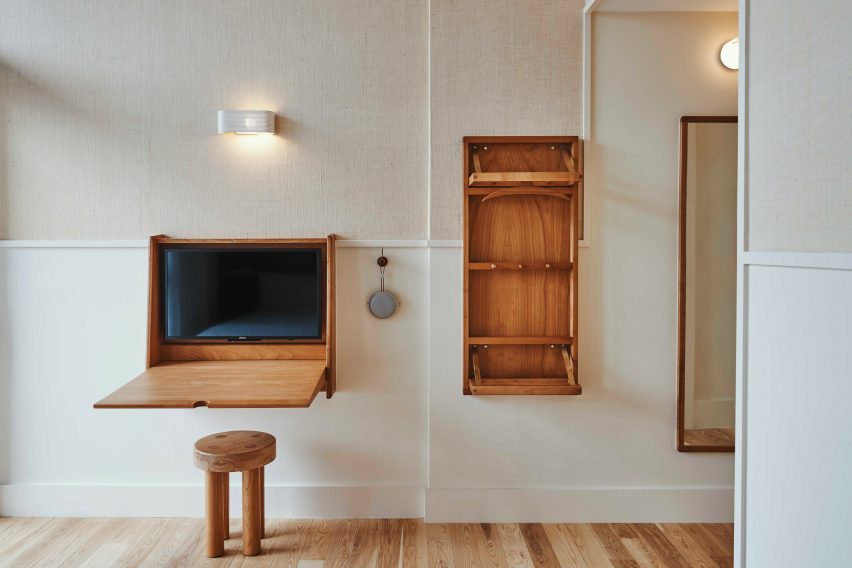
Bathrooms are lined in pale tiles and feature Davines beauty products with branding designed by Atelier Ace's that looks like hand-drawn lettering. Similarly, childlike details feature throughout Sister City, such as a magnetic tick that guests can use to mark on the front of their doors if they would like room cleaning.
On each floor, the design team has created self-service sections featuring a tap, water jugs, a steamer and extra towels. Along with the self-check-in, it forms part of the aim to simplify and update hospitality.
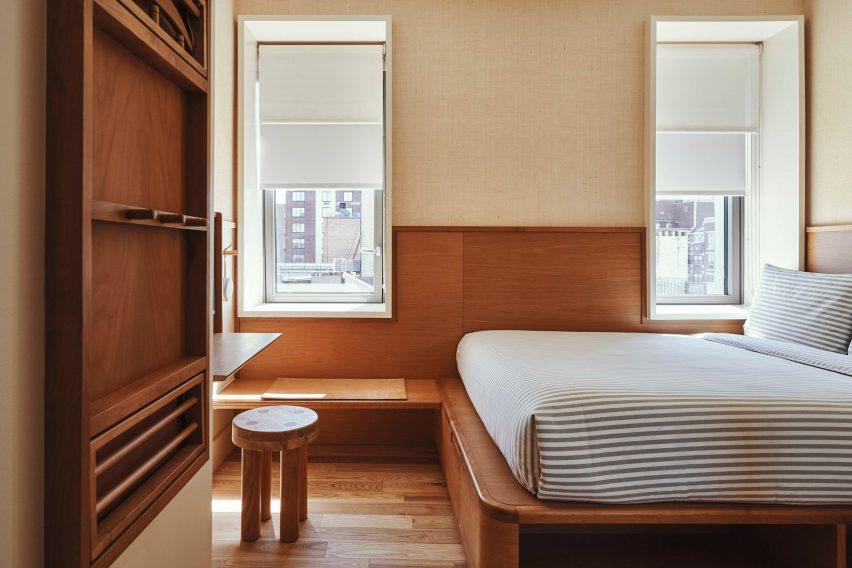
"We were inspired by the philosophy of Less, But Better," said the team in a project statement.
"The inherent satisfaction of having just enough," it added. "We asked what was needed for today's traveler, and shaved off the excess, considering aesthetic sustenance and human connection modern needs as well."
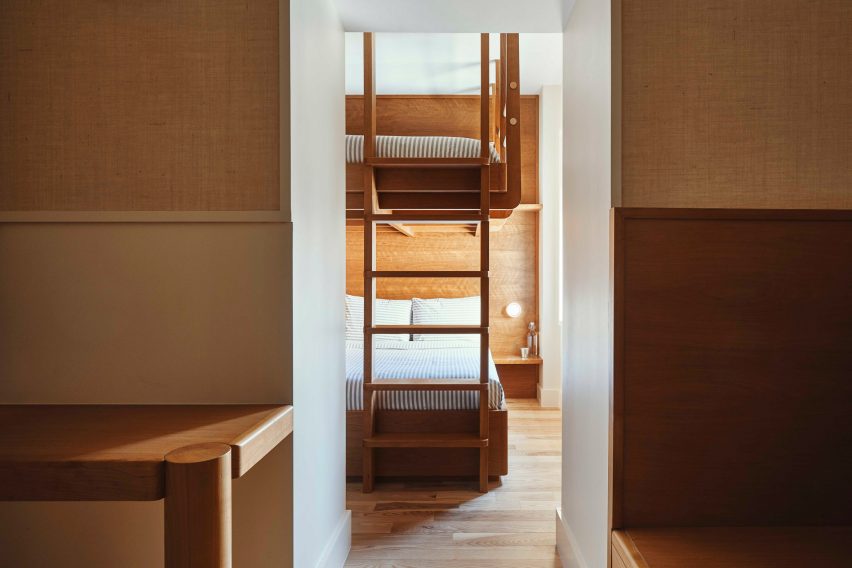
Guests are also able to easily personalise their stay, by requesting extra pillows or a dog bowl through the hotel's website, and check the weather on the 24-hour rooftop camera.
The environment seen on the sky camera also informs the lobby score, which was developed by electronic musician Julianna Barwick and powered by Microsoft's AI technology.
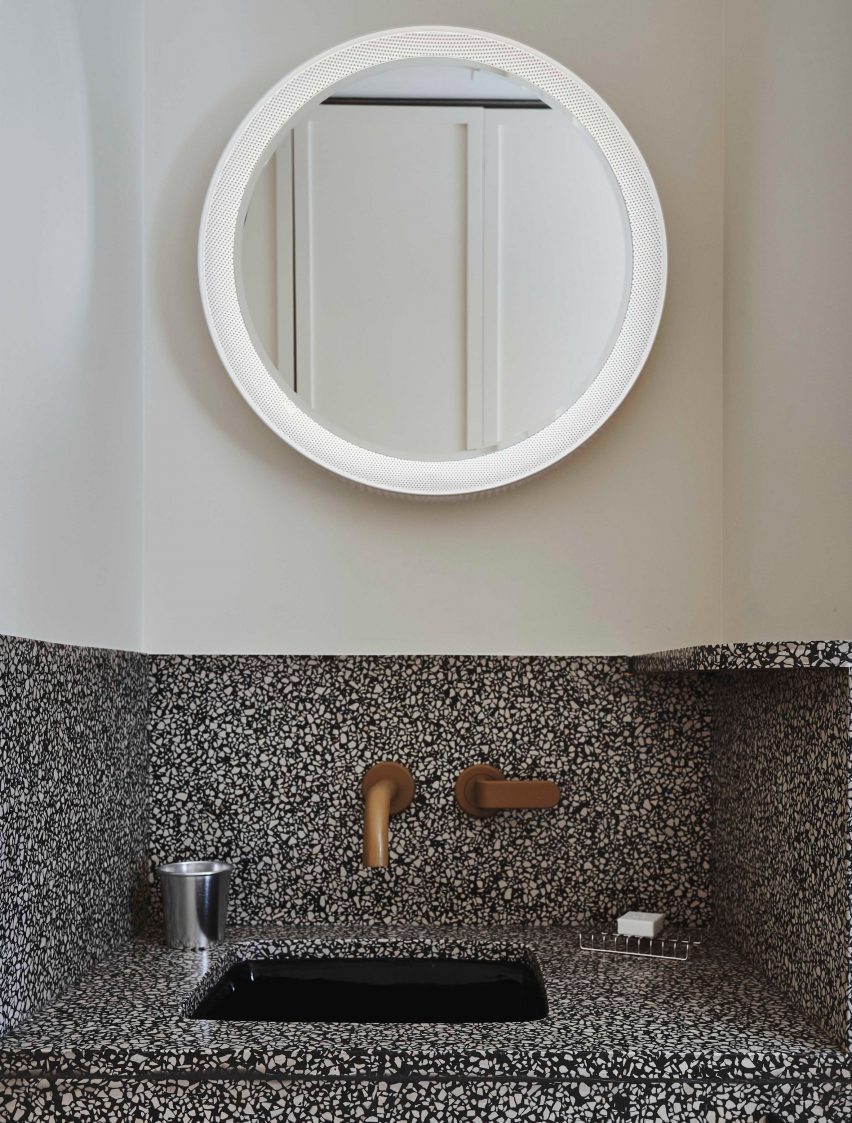
"Mindful design, artful technology and seamless functionality impart a sense of balance and belonging, and provide guests with both autonomy and considered care," said Atelier Ace. "Every element of Sister City was holistically designed toward an expressly innovative experience built for the future but rooted in the present moment."
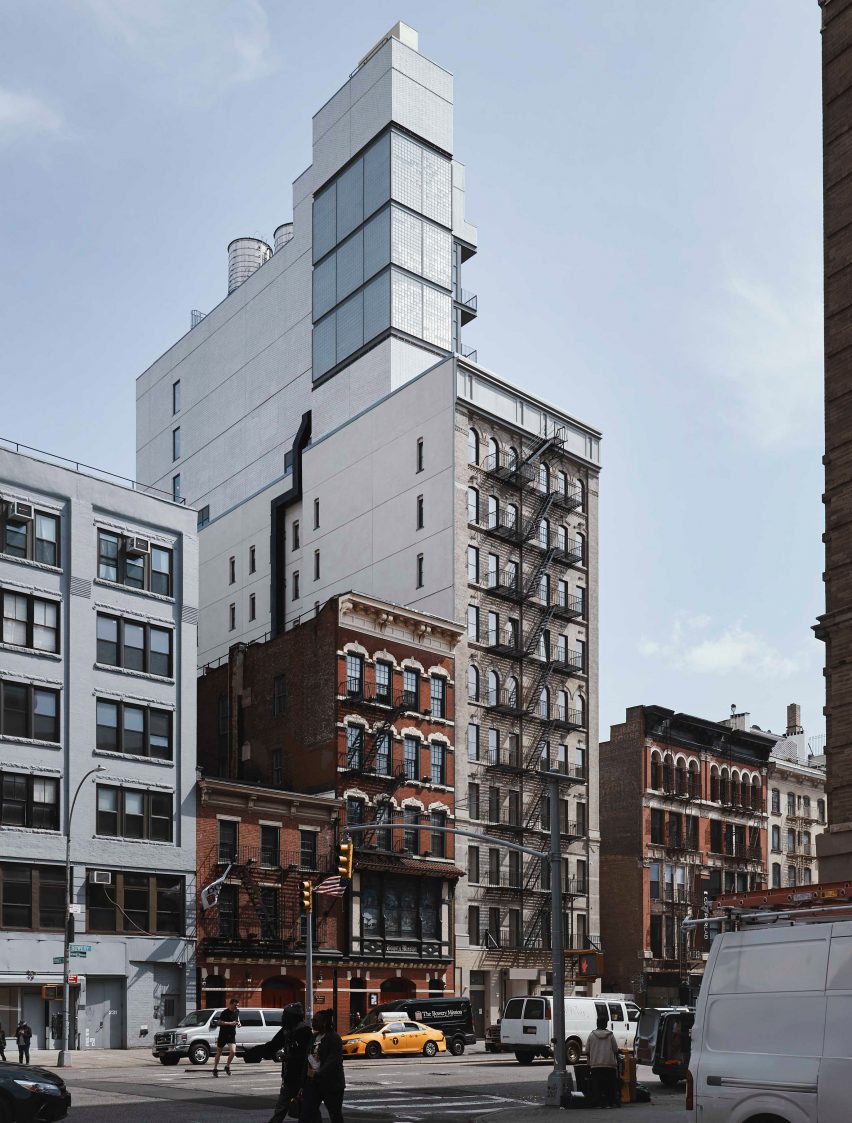
Atelier Ace creative studio was set up as the offshoot of the Ace Hotel chain, which was started by late hotelier Alex Calderwood in 1999.
The chain features outposts across the US, including New Orleans, Los Angeles, New York, Palm Springs, Pittsburgh, and Portland, Oregon. London and Panama City are among its current international outposts.
Photography is by Adrian Gaut, unless stated otherwise.